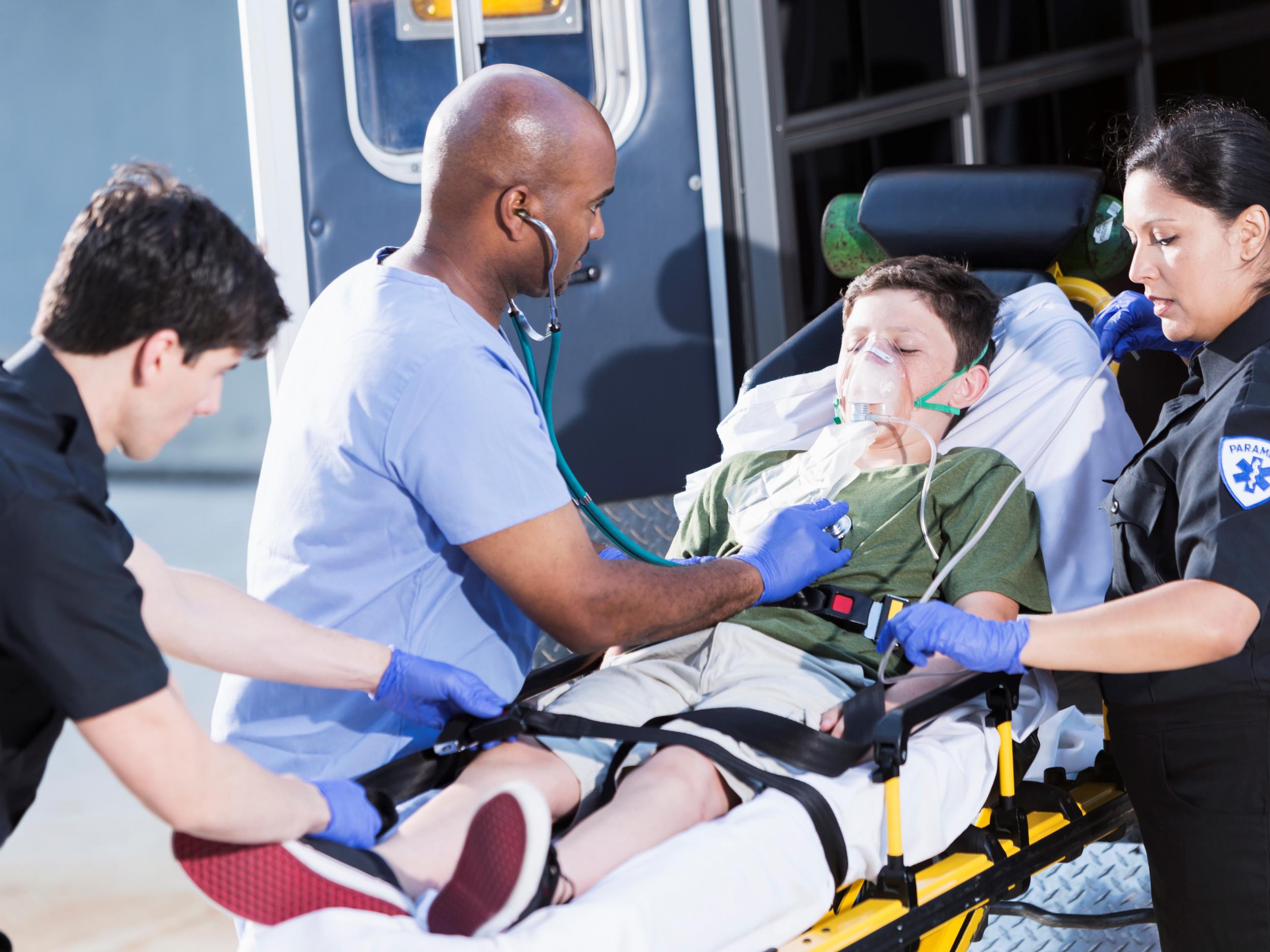Children ‘second class citizens’ as paediatric A&E staff redeployed to adult emergency care, experts warn
Shortage of 800 paediatric consultants across NHS made worse by experienced doctors cutting hours and decline in trainees from EU, Royal College says

Seriously ill children are being treated like “second class citizens” by the NHS as scarce paediatric staff are pulled from emergency rooms to cope with winter pressure in adult A&Es, senior doctors have warned.
Around 850 paediatric consultants are needed across the NHS just to provide safe and sustainable care, according to a workforce report by the Royal College of Paediatrics and Child Health (RCPCH).
This is a rise of 21 per cent from 2017 due to rising numbers of cases and an increase in senior consultants working less than full time hours.
The RCPCH also asked 250 paediatric emergency care specialists about the pressures they face heading in to winter, with a third saying staffing shortages – in particular nurses – are the biggest issue.
Without enough specialist nurses, paediatric beds and entire wards have to be closed because they cannot be run safely.
But despite existing pressures many specialists reported staff being reshuffled to A&E.
“If we do not have the beds, we cannot treat the patients and that means children are missing out on important care,” said Dr Simon Clark, workforce officer at the RCPCH. “The winter months are known to make children vulnerable to illness so to learn that staff are being removed from paediatrics to support adult patients is completely unacceptable.
“Children are equally as vulnerable as the elderly at this time of year and should not be treated as second class citizens.”
Last year The Independent revealed bed pressures were so severe that adult patients had to be housed on child wards, and trusts are warning this winter could be even worse.
Rushed staff are unable to take breaks, increasing the risk of burnout and fatigue that can cause others to go off sick.
Pressures across the wider paediatric consultant workforce are particularly worrying because of a shortage of trainees to replace the experienced doctors cutting down their hours.
This has been made worse by a 58 per cent drop in European doctors applying to paediatric training – there were 97 applicants in 2015 but only 41 in 2017.
There have also been increases in trainees dropping out.
Consultant numbers have risen 7.8 per cent in the last two years, from 3,996 to 4,306. But each consultant is only working around 77 per cent of full time hours on average and the RCPCH says 600 more training posts a year are needed to fill the gaps.
Professor Russel Viner, president of the RCPCH said: “Due to the modern style of working our doctors quite rightly favour, we have the equivalent of three-quarters of each doctor employed, available to actually deliver care. That’s why we urgently need hundreds more, allowing paediatrics to be a modern career choice and one that fosters the health and wellbeing of our members and our patients.”
Jonathan Ashworth, the shadow health and social care secretary said: “After years of Tory cuts to training budgets and failure to undertake proper workforce planning the NHS is today suffering from chronic understaffing which is directly impacting on the delivery of safe patient care. The number of staff shortages across paediatrics will be especially alarming for parents and carers who naturally want the very best for their children.”
NHS England and the Department of Health and Social Care were approached for comment.
Subscribe to Independent Premium to bookmark this article
Want to bookmark your favourite articles and stories to read or reference later? Start your Independent Premium subscription today.

Join our commenting forum
Join thought-provoking conversations, follow other Independent readers and see their replies